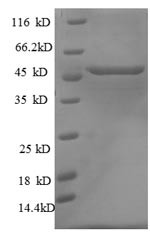Cookie preferences
This website uses cookies, which are necessary for the technical operation of the website and are always set. Other cookies, which increase the comfort when using this website, are used for direct advertising or to facilitate interaction with other websites and social networks, are only set with your consent.
Configuration
Technically required
These cookies are necessary for the basic functions of the shop.
"Allow all cookies" cookie
"Decline all cookies" cookie
CSRF token
Cookie preferences
Currency change
Customer-specific caching
FACT-Finder tracking
Individual prices
Selected shop
Session
Comfort functions
These cookies are used to make the shopping experience even more appealing, for example for the recognition of the visitor.
Note
Show the facebook fanpage in the right blod sidebar
Statistics & Tracking
Affiliate program
Conversion and usertracking via Google Tag Manager
Track device being used

If you have any questions, please use our Contact Form.
You can also order by e-mail: info@biomol.com
Larger quantity required? Request bulk
You can also order by e-mail: info@biomol.com
Larger quantity required? Request bulk
Organism: Rattus norvegicus (Rat). Source: E.coli. Expression Region: 1-391aa. Protein Length:... more
Product information "Cellular tumor antigen p53 (Tp53), rat, recombinant"
Organism: Rattus norvegicus (Rat). Source: E.coli. Expression Region: 1-391aa. Protein Length: Full Length. Tag Info: N-terminal 6xHis-tagged. Target Protein Sequence: MEDSQSDMSI ELPLSQETFS CLWKLLPPDD ILPTTATGSP NSMEDLFLPQ DVAELLEGPE EALQVSAPAA QEPGTEAPAP VAPASATPWP LSSSVPSQKT YQGNYGFHLG FLQSGTAKSV MCTYSISLNK LFCQLAKTCP VQLWVTSTPP PGTRVRAMAI YKKSQHMTEV VRRCPHHERC SDGDGLAPPQ HLIRVEGNPY AEYLDDRQTF RHSVVVPYEP PEVGSDYTTI HYKYMCNSSC MGGMNRRPIL TIITLEDSSG NLLGRDSFEV RVCACPGRDR RTEEENFRKK EEHCPELPPG SAKRALPTST SSSPQQKKKP LDGEYFTLKI RGRERFEMFR ELNEALELKD ARAAEESGDS RAHSSYPKTK KGQSTSRHKK PMIKKVGPDS D. Purity: Greater than 90% as determined by SDS-PAGE. Endotoxin: Not test. Biological Activity: n/a. Form: Liquid or Lyophilized powder. Buffer: If the delivery form is liquid, the default storage buffer is Tris/PBS-based buffer, 5%-50% glycerol. If the delivery form is lyophilized powder, the buffer before lyophilization is Tris/PBS-based buffer, 6% Trehalose, pH 8.0. Reconstitution: We recommend that this vial be briefly centrifuged prior to opening to bring the contents to the bottom. Please reconstitute protein in deionized sterile water to a concentration of 0.1-1.0 mg/mL.We recommend to add 5-50% of glycerol (final concentration) and aliquot for long-term storage at -20 °C/-80 °C. Our default final concentration of glycerol is 50%. Customers could use it as reference. Storage: The shelf life is related to many factors, storage state, buffer ingredients, storage temperature and the stability of the protein itself. Generally, the shelf life of liquid form is 6 months at -20 °C/-80 °C. The shelf life of lyophilized form is 12 months at -20 °C/-80 °C. Notes: Repeated freezing and thawing is not recommended. Store working aliquots at 4 °C for up to one week. Relevance: Acts as a tumor suppressor in many tumor types, induces growth arrest or apoptosis depending on the physiological circumstances and cell type. Involved in cell cycle regulation as a trans-activator that acts to negatively regulate cell division by controlling a set of genes required for this process. One of the activated genes is an inhibitor of cyclin-dependent kinases. Apoptosis induction ses to be mediated either by stimulation of BAX and FAS antigen expression, or by repression of Bcl-2 expression. In cooperation with mitochondrial PPIF is involved in activating oxidative stress-induced necrosis, the function is largely independent of transcription. Prevents CDK7 kinase activity when associated to CAK complex in response to DNA damage, thus stopping cell cycle progression. Induces the transcription of long intergenic non-coding RNA p21 (lincRNA-p21) and lincRNA-Mkln1. LincRNA-p21 participates in TP53-dependent transcriptional repression leading to apoptosis and se to have to effect on cell-cycle regulation. Regulates the circadian clock by repressing CLOCK-ARNTL/BMAL1-mediated transcriptional activation of PER2. Reference: Heat shock protein 84 forms a complex with mutant p53 protein predominantly within a Cytoplasmic domain compartment of the cell.Sepehrnia B., Paz I.B., Dasgupta G., Momand J.J. Biol. Chem. 271:15084-15090(1996). Function: Acts as a tumor suppressor in many tumor types, induces growth arrest or apoptosis depending on the physiological circumstances and cell type. Involved in cell cycle regulation as a trans-activator that acts to negatively regulate cell division by controlling a set of genes required for this process. One of the activated genes is an inhibitor of cyclin-dependent kinases. Apoptosis induction seems to be mediated either by stimulation of BAX and FAS antigen expression, or by repression of Bcl-2 expression. In cooperation with mitochondrial PPIF is involved in activating oxidative stress-induced necrosis, the function is largely independent of transcription. Prevents CDK7 kinase activity when associated to CAK complex in response to DNA damage, thus stopping cell cycle progression. Induces the transcription of long intergenic non-coding RNA p21 (lincRNA-p21) and lincRNA-Mkln1. LincRNA-p21 participates in TP53-dependent transcriptional repression leading to apoptosis and seem to have to effect on cell-cycle regulation. Regulates the circadian clock by repressing CLOCK-ARNTL/BMAL1-mediated transcriptional activation of PER2.
| Keywords: | P53, Tp53, Tumor suppressor p53, Cellular tumor antigen p53, Recombinant Rat Cellular tumor antigen p53 (Tp53) |
| Supplier: | Cusabio |
| Supplier-Nr: | RP155094r |
Properties
| Application: | Activity not tested |
| Conjugate: | No |
| Host: | E.coli |
| Species reactivity: | rat |
| MW: | 47.5 kD |
| Purity: | >90% (SDS-PAGE) |
Database Information
| KEGG ID : | K04451 | Matching products |
| UniProt ID : | P10361 | Matching products |
| Gene ID | GeneID 24842 | Matching products |
Handling & Safety
| Storage: | -20°C |
| Shipping: | +4°C (International: +4°C) |
Caution
Our products are for laboratory research use only: Not for administration to humans!
Our products are for laboratory research use only: Not for administration to humans!
You will get a certificate here
Viewed


